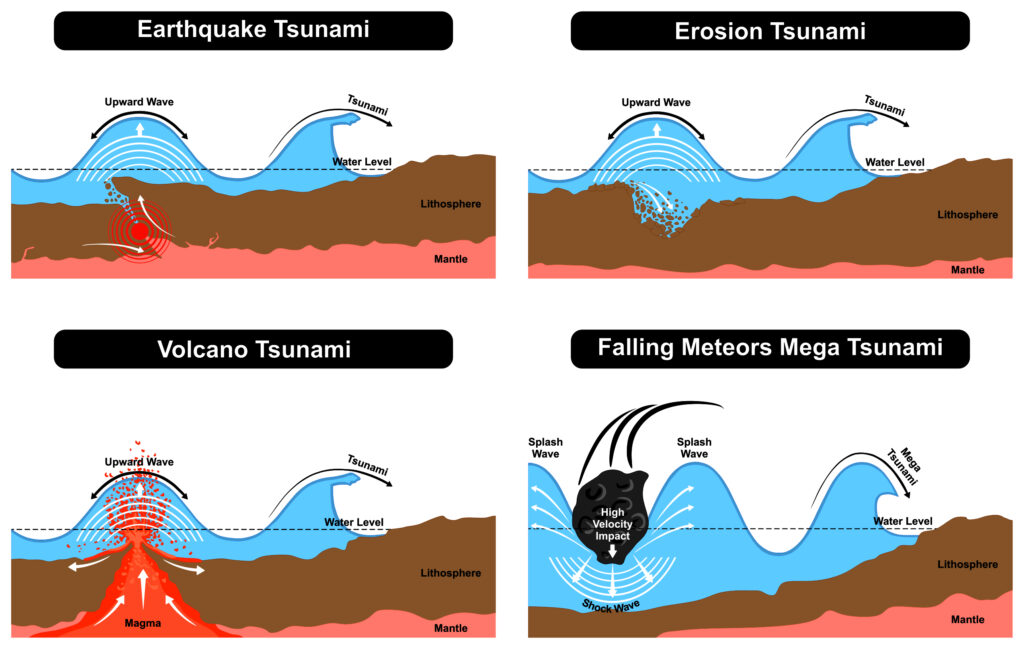Tsunami waves hit several parts of Japan’s coastal areas and urgent evacuation warnings were issued after a 7.6-magnitude earthquake shook the country’s north-central region.
What is Tsunami?
Submarine earthquakes have generated about 80% of all tsunami events recorded globally.
|
Scientific Basis of Tsunami – Earthquake based |
|
The wavelength is a factor which distinguishes tsunamis from wind waves, a tsunami wavelength can be more than 200 km long which is considerably longer than a wind wave wavelength.
|
Conditions for an earthquake to cause Tsunami |
|

India is one of the 10 worst disaster prone countries in the world.
|
Why is Japan prone to earthquakes and tsunamis? |
|
|
National Disaster Management Authority (NDMA) |
|
Indian National Centre of Ocean Information Services (INCOIS) is the Nodal agency for Tsunami related early warning system.
|
India’s relief operation aftermath of Tsunami |
|
References
Kai Elian 28 days
Unlock your creativity with zzo.ai, the comprehensive AI platform for all your visual needs. Whether you are a marketer, designer, or content creator, zzo.ai helps you:
1. AI Image Generator: Turn text into high-quality images instantly.
2. Magic Editor: Modify details and fix images effortlessly.
3. Background Remover: Clean up product photos or portraits with one click. Streamline your workflow and save hours of editing time. Try it now at zzo.ai.
Site URL: https://zzo.ai
Site URL: [Zzo AI Image and Video Generator](https://zzo.ai)
Site URL: <a href="https://zzo.ai" target="_blank">Zzo AI Image and Video Generator</a>
Aiden Walker 1 month
Appreciate the detailed breakdown of the seismic shifts involved in the Japan region. It is crucial for candidates to stay updated on these international events and maintain a professional presence within the academic community. professional business profile portraits
Aiden Walker 1 month
This is an excellent resource for current affairs preparation. Understanding the socio-economic aftermath of such disasters requires a very structured analytical approach, and leveraging modern digital tools definitely helps in organizing these complex case studies creative AI prompt engineering patterns
Aiden Walker 1 month
The geological analysis of the Japan tsunami provided here is very thorough. For those studying disaster impact through historical records, having high-quality visual data is essential to identify structural vulnerabilities. sharpen blurry archival photos